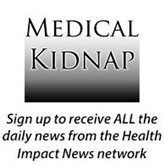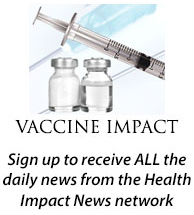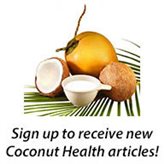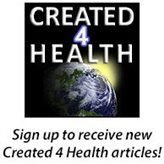
by Dr. Mercola
The UK-based, international campaign group, the Alliance for Natural Health International (ANH-Intl) recently revealed data1 showing that compared to supplements, an individual is:
- Around 900 times more likely to die from food poisoning
- Nearly 300,000 times more likely to die from a preventable medical injury during a UK hospital stay, which is comparable to the individual risk of dying that active military face in Iraq or Afghanistan
Additionally, the data shows that adverse reactions to pharmaceutical drugs are:
- 62,000 times more likely to kill you than food supplements
- 7,750 times more likely to kill you than herbal remedies
The data, which was collected from official sources in the UK and EU, demonstrate that both food supplements and herbal remedies are in the ‘super-safe’ category of individual risk – meaning risk of death from their consumption is less than 1 in 10 million. The group has created an excellent graphic2 showing your relative risk of death from a variety of activities. Besides drugs and hospital injuries, you’re also more likely to die from being struck by lightning or drowning in your bathtub than having a lethal reaction to herbs or supplements…
According to the featured article on NewHope360.com3:
“ANH-Intl executive and scientific director, Robert Verkerk PhD, hailed the figures as shedding new light on the vexed question of natural healthcare’s safety. “These figures tell us not only what activities an individual is most or least likely to die from, but also what the relative risks of various activities are to society as a whole. It puts some real perspective on the actual risk of death posed by food supplements and herbal remedies at a time when governments are clamping down because they tell us they’re dangerous.
… According to Dr Verkerk, the new figures should help to pressure UK and European authorities to reduce regulatory burdens on natural health products.”
With a Super-Safe Track Record, Why are Supplements Under Attack?
Vitamins, minerals and herbal supplements have a tremendously safe track record, yet they are often singled out as being potentially dangerous by government agencies like the U.S. Food and Drug Administration (FDA). This – the notion that dietary supplements are unsafe — was the premise behind the FDA’s Draft Guidance on New Dietary Ingredients (NDI), which would have required the supplement industry to prove the safety of natural ingredients that, in many cases, have been on the market and used safely for decades!
Fortunately, public outcry made the agency agree to take another look at their proposed guidance and to issue a revised draft4. It’s still not known when the revisions might be completed.
The original NDI draft essentially claimed dietary supplements are unsafe and must be carefully tested in order to “protect consumers.” The proposed safety thresholds even exceeded those required by pharmaceutical drugs — despite extensive toxicological data showing supplements are FAR safer than drugs. As detailed above, drugs are 62,000 times more likely to kill you than supplements! Why on earth would supplements need more stringent safety thresholds than drugs?
It’s an obvious attempt to eliminate competition for the drug industry.
Data from the United States fully corroborates the featured UK data. For example, according to the latest data from the U.S. National Poison Data System (2010 report)5, NO deaths were attributable to vitamin and mineral supplements that year. And, as noted by Orthomolecular Medicine News Service last year6, Americans easily take more than 60 billion doses of nutritional supplements every year, and with zero related deaths this is an outstanding safety record:
“Well over half of the U.S. population takes daily nutritional supplements. Even if each of those people took only one single tablet daily, that makes 165,000,000 individual doses per day, for a total of over 60 billion doses annually. Since many persons take far more than just one single vitamin or mineral tablet, actual consumption is considerably higher, and the safety of nutritional supplements is all the more remarkable.
Over 60 billion doses of vitamin and mineral supplements per year in the USA, and not a single fatality. Not one. If vitamin and mineral supplements are allegedly so “dangerous,” as the FDA and news media so often claim, then where are the bodies?”
The Drug Industry is the Real Health Threat
In striking contrast, drugs are known to cause well over 125,000 deaths per year in the US when taken correctly as prescribed – yet the FDA allows fast-track approvals and countless new additions of poorly tested drugs to the marketplace that must later be withdrawn due to their lethal consequences.
It is simply incomprehensible that any rational approach would seek to vilify supplements over drugs when the data in no way, shape or form supports it. The most likely motive for this position is financial greed that can put your life in jeopardy. According to the US National Poison Data System7 the following drug categories are among the most lethal:
- Analgesics, sedatives, hypnotics, and antipsychotics
- Cardiovascular drugs
- Opioids
- Acetaminophen combinations
- Antidepressants
Slightly lower down on the list you find drugs like muscle relaxants, anti-inflammatory drugs, hormones, antacids, anticoagulants, and antihistamines.
Time to Start a New “Just say NO!” Anti-Drug Movement
The anti-drug slogan coined by Nancy Reagan in the early 1980’s is just as applicable for today’s prescription drug problem as the recreational drug problem of the past. The only difference is that today prescription drugs have eclipsed illicit drugs as the number one source of poisoning deaths. Prescription drugs have also been identified as the primary “gateway” to illegal drug use, beating out marijuana, alcohol and cigarettes.
According to a July 6 press release8.
“… Since 2000, the drugs sending people to their graves or to rehab have been shifting away from illicit drugs and toward prescription drugs. The 2011 report on the subject from the Centers for Disease Control and Prevention made it clear: prescription narcotic pain reliever overdose deaths now exceed the number of deaths from heroin and cocaine combined.
… “Our own clients and people calling in daily for information about our program or help have told us story after story about addictions starting with the use of prescription drugs,” stated Derry Hallmark, Director of Admissions at Narconon Arrowhead, a premier drug rehab facility in Southeastern Oklahoma. “Sadly, prescription medications have become the newest of the gateway drugs. Sadder still are the losses of life and other severe consequences that go hand in hand with drug abuse, which is especially the case with prescription drug abuse.”
Hallmark adds that those addicted to prescriptions will often end up needing treatment or will even start taking illicit drugs. One of the most common examples of this is the connection between those addicted to painkillers that then start taking heroin…”
It’s important to understand that there is a risk of side effects every time you take a prescription drug. No one (except for those who intentionally overdose) expects these medications to kill them, but they can do just that, and it happens far more often than you might think. In a 2011 report by the Substance Abuse and Mental Health Services Administration (SAMSHA), officials emphasized that people should not assume there’s no risk in prescribed medicines9.
The truth is, the best way to avoid all risk, including death, from prescription drugs is to not take them at all.
Remember, it’s your body, not your doctor’s and not your pharmacist’s, so it is up to you to make the decision of what drugs to take, if any. Be SURE you are aware of the risks of any medication prescribed to you, and weigh them against any possible benefit. Then you can make a well-informed decision of whether it’s a risk you’re willing to take.
Sources:
Read the Full Article Here: http://articles.mercola.com/sites/articles/archive/2012/07/24/pharmaceutical-drugs-vs-nutritional-supplements.aspx








